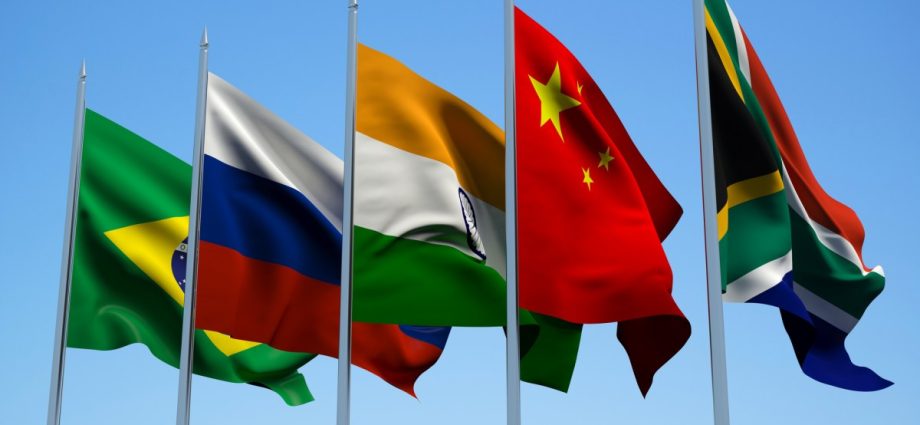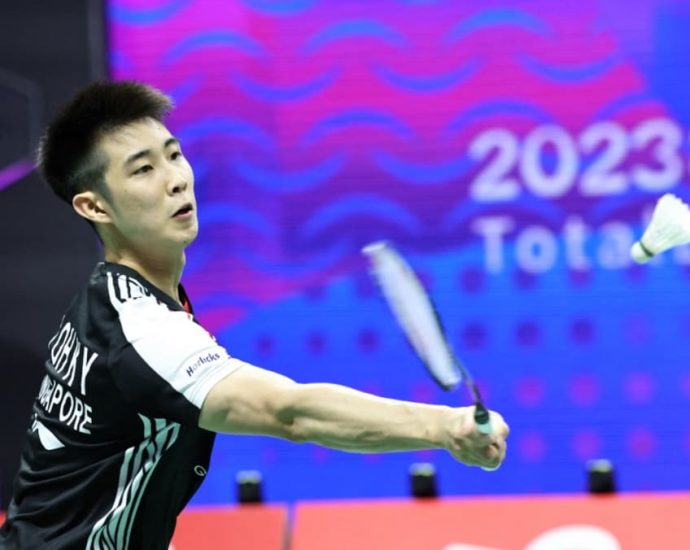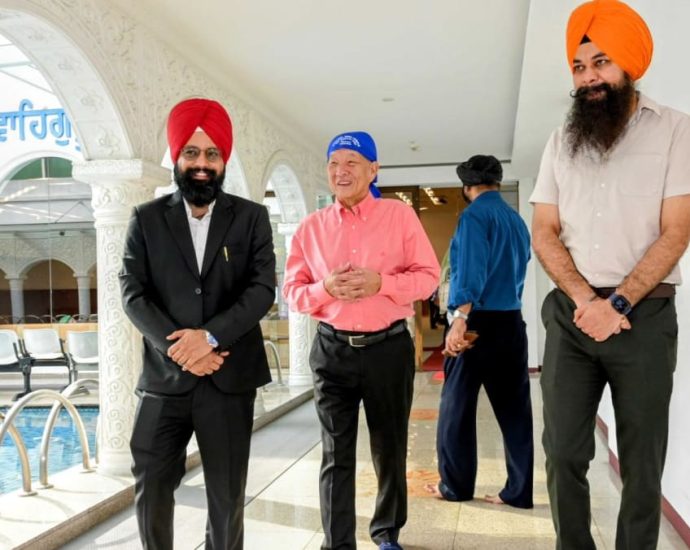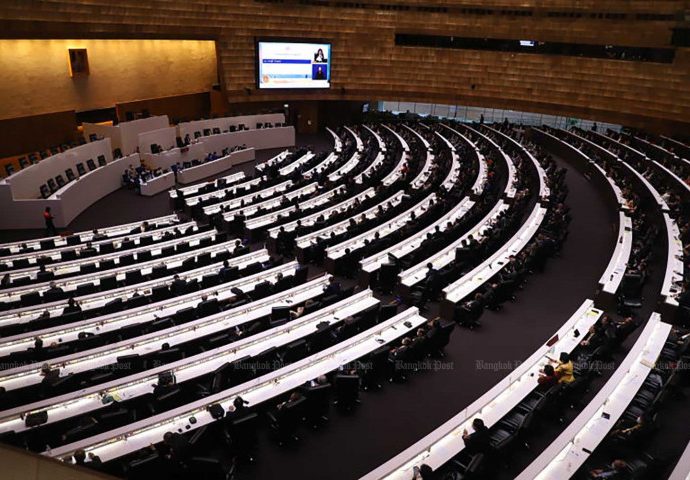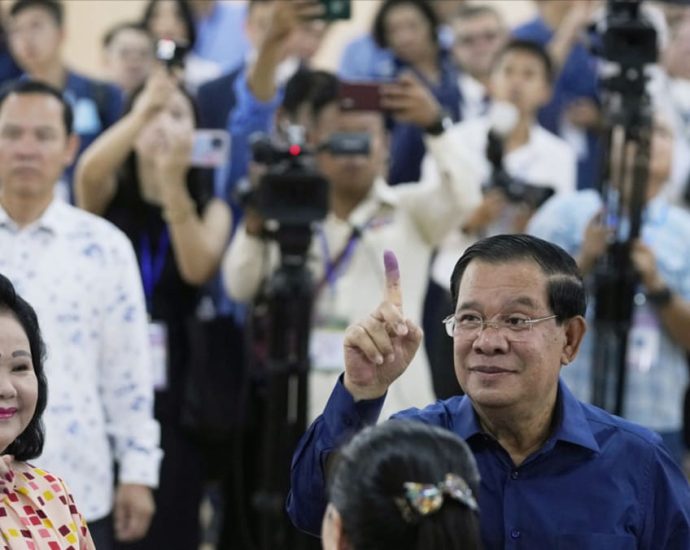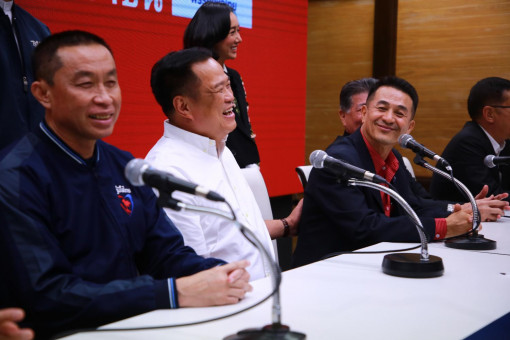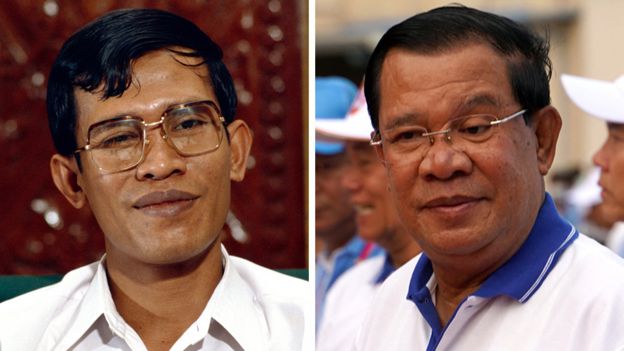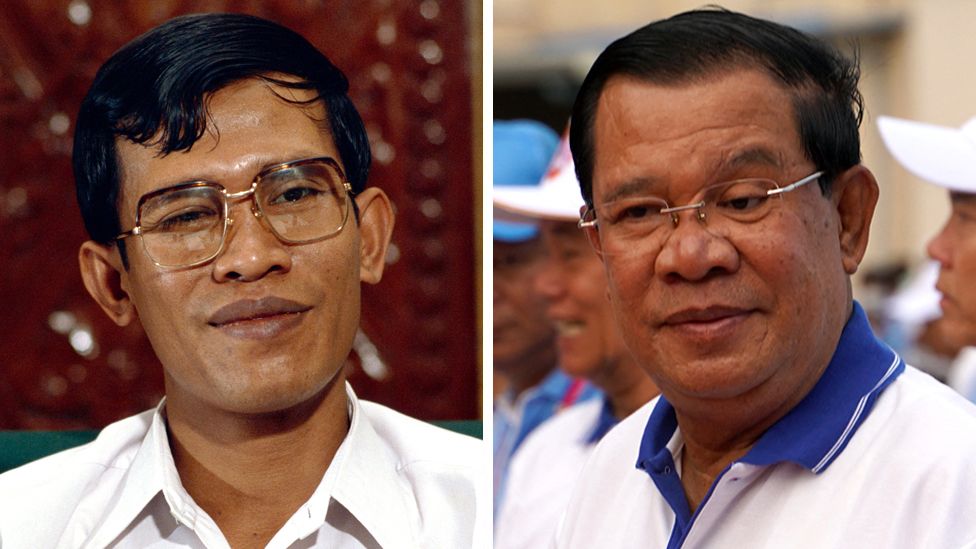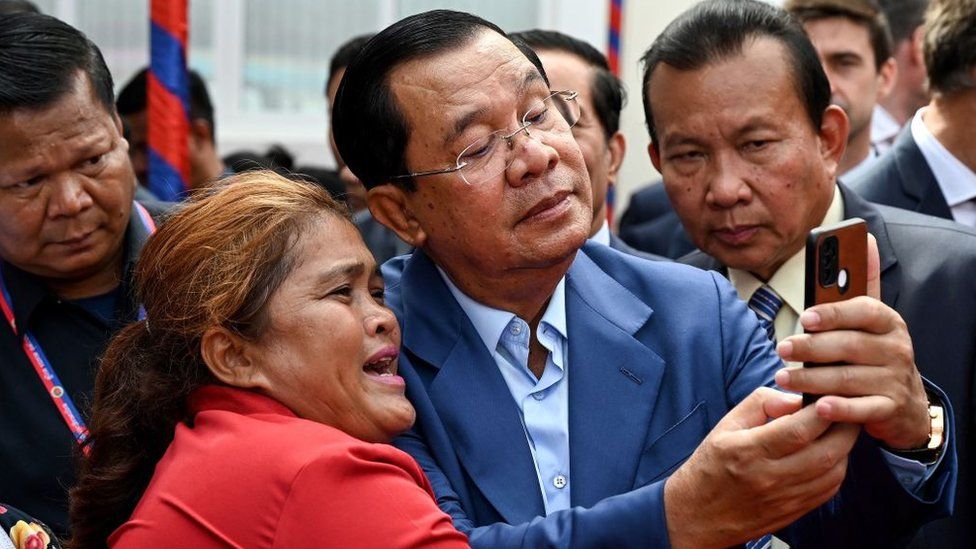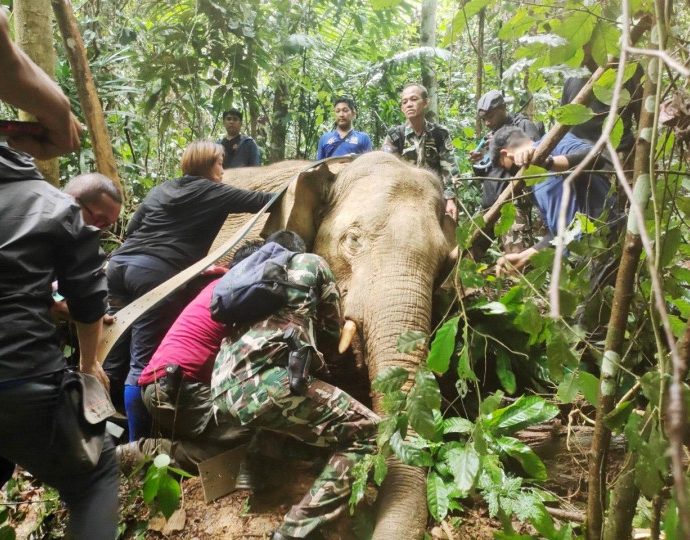Why capitalism is leaving the US, in search of profit

Early US capitalism was centered in New England. After some time, the pursuit of profit led many capitalists to leave that area and move production to New York and the mid-Atlantic states. Much of New England was left with abandoned factory buildings and depressed towns evident to this day.
Eventually employers moved again, abandoning New York and the mid-Atlantic for the Midwest. The same story kept repeating as capitalism’s center relocated to the Far West, the South, and the Southwest. Descriptive terms like “Rust Belt,” “deindustrialization,” and “manufacturing desert” increasingly applied to ever more portions of US capitalism.
So long as capitalism’s movements stayed mostly within the US, the alarms raised by its abandoned victims remained regional, not becoming a national issue yet. Over recent decades, however, many capitalists have moved production facilities and investments outside the US, relocating them to other countries, especially to China.
Ongoing controversies and alarms surround this capitalist exodus. Even the celebrated high-tech sectors, arguably US capitalism’s only remaining robust center, have invested heavily elsewhere.
Since the 1970s, wages were far lower abroad and markets were growing faster there too. Ever more US capitalists had to leave or risk losing their competitive edge over those capitalists (European and Japanese, as well as US) who had left earlier for China and were showing stunningly improved profit rates.
System rewards the already rich
Beyond China, other Asian, South American and African countries also provided incentives of low wages and growing markets, which eventually drew US capitalists and others to move investments there.
Profits from those capitalists’ movements stimulated more movements. Rising profits flowed back to rally US stock markets and produced great gains in income and wealth.
That chiefly benefited the already rich corporate shareholders and top corporate executives. They in turn promoted and funded ideological claims that capitalism’s abandonment of the US was actually a great gain for American society as a whole.
Those claims, categorized under the headings of “neoliberalism” and “globalization,” served neatly to hide or obscure one key fact: Higher profits mainly for the richest few was the chief goal and the result of capitalists abandoning the US.
Neoliberalism was a new version of an old economic theory that justified capitalists’ “free choices” as the necessary means to achieve optimal efficiency for entire economies. According to the neoliberal view, governments should minimize any regulation or other interference in capitalists’ profit-driven decisions.
Neoliberalism celebrated “globalization,” its preferred name for capitalists’ choosing specifically to move production overseas. That “free choice” was said to enable “more efficient” production of goods and services because capitalists could tap globally sourced resources.
The point and punchline flowing from exaltations of neoliberalism, capitalists’ free choices, and globalization were that all citizens benefited when capitalism moved on. Excepting a few dissenters (including some unions), politicians, mass media and academicians largely joined the intense cheerleading for capitalism’s neoliberal globalization.
The economic consequences of capitalism’s profit-driven movement out of its old centers (Western Europe, North America and Japan) brought capitalism there to its current crisis.
Advantage: China
First, real wages stagnated in the old centers. Employers who could export jobs (especially in manufacturing) did so. Employers who could not (especially in service sectors) automated them.
As US job opportunities stopped rising, so did wages. Since globalization and automation boosted corporate profits and stock markets while wages stagnated, capitalism’s old centers exhibited extreme widening of income and wealth gaps. Deepening social divisions followed and culminated in capitalism’s crisis now.
Second, unlike many other poor countries, China possessed the ideology and organization to make sure that investments made by capitalists served China’s own development plan and economic strategy.
China required the sharing of incoming capitalists’ advanced technologies (in exchange for those capitalists’ access to low-wage Chinese labor and rapidly expanding Chinese markets). The capitalists entering the Beijing markets were also required to facilitate partnerships between Chinese producers and distribution channels in their home countries.
China’s strategy to prioritize exports meant that it needed to secure access to distribution systems (and thus distribution networks controlled by capitalists) in its targeted markets. Mutually profitable partnerships developed between China and global distributors such as Walmart.
Beijing’s “socialism with Chinese characteristics” included a powerful development-focused political party and state. Conjointly they supervised and controlled an economy that mixed private with state capitalism.
In that model, private employers and state employers each direct masses of employees in their respective enterprises. Both sets of employers function subject to the strategic interventions of a party and government determined to achieve its economic goals.
As a result of how it defined and operated its socialism, China’s economy gained more (especially in GDP growth) from neoliberal globalization than Western Europe, North America and Japan did. China grew fast enough to compete now with capitalism’s old centers.
Shortsighted US response
The decline of the US within a changing world economy has contributed to the crisis of US capitalism. For the US empire that arose out of World War II, China and its BRICS allies (Brazil, Russia, India and South Africa) represent its first serious, sustained economic challenge.
The official US reaction to these changes so far has been a mix of resentment, provocation and denial. Those are neither solutions to the crisis nor successful adjustments to a changed reality.
Third, the Ukraine war has exposed key effects of capitalism’s geographic movements and the accelerated economic decline of the US relative to the economic rise of China. Thus the US-led sanctions war against Russia has failed to crush the ruble or collapse the Russian economy.
That failure has followed in good part because Russia obtained crucial support from the alliances (BRICS) already built around China. Those alliances, enriched by both foreign and domestic capitalists’ investments, especially in China and India, provided alternative markets when sanctions closed off Western markets to Russian exports.
Earlier income and wealth gaps in the US, worsened by the export and automation of high-paying jobs, undermined the economic basis of that “vast middle class” that so many employees believed themselves to be part of.
Over recent decades, workers who expected to enjoy “the American dream” found that increased costs of goods and services led to the dream being beyond their reach. Their children, especially those forced to borrow for university, found themselves in a similar situation or in a worse one.
Fighting back
Resistances of all sorts arose (unionization drives, strikes, left and right “populisms”) as working-class living conditions kept deteriorating. Making matters worse, mass media celebrated the stupefying wealth of those few who profited most from neoliberal globalization.
In the US, phenomena like former president Donald Trump, Vermont’s independent Senator Bernie Sanders, white supremacy, unionization, strikes, explicit anti-capitalism, “culture” wars, and frequently bizarre political extremism reflect deepening social divisions.
Many in the US feel betrayed after being abandoned by capitalism. Their differing explanations for the betrayal exacerbate the widely held sense of crisis in the nation.
Capitalism’s global relocation helped raise the total GDP of the BRICS nations (China + allies) well above that of the Group of Seven (US + allies). For all the countries of the Global South, their appeals for development assistance can now be directed to two possible respondents (China and the US), not just the one in the West.
When Chinese entities invest in Africa, of course their investments are structured to help both donors and recipients. Whether the relationship between them is imperialist or not depends on the specifics of the relationship, and its balance of net gains.
Those gains for the BRICS will likely be substantial. Russia’s adjustment to Ukraine-related sanctions against it not only led it to lean more on BRICS but likewise intensified the economic interactions among BRICS members.
Existing economic links and conjoint projects among them grew. New ones are fast emerging. Unsurprisingly, additional countries in the Global South have recently requested BRICS membership.
Capitalism has moved on, abandoning its old centers and thereby pushing its problems and divisions to crisis levels. Because profits still flow back to the old centers, those there gathering the profits delude their countries and themselves into thinking all is well in and for global capitalism. Because those profits sharply aggravate economic inequalities, social crises there deepen.
For example, the wave of labor militancy sweeping across nearly all US industries reflects anger and resentment against those inequalities. The hysterical scapegoating of various minorities by right-wing demagogues and movements is another reflection of the worsening difficulties.
Yet another is the growing realization that the problem, at its root, is the capitalist system. All of these are components of today’s crisis.
Even in capitalism’s new dynamic centers, a critical socialist question returns to agitate people’s minds. Is the new centers’ organization of workplaces – retaining the old capitalist model of employers vs employees in both private and state enterprises – desirable or sustainable?
Is it acceptable for a small group, employers, exclusively and unaccountably to make most key workplace decisions (what, where, and how to produce and what to do with the profits)?
That is clearly undemocratic. Employees in capitalism’s new centers already question the system; some have begun to challenge and move against it. Where those new centers celebrate some variety of socialism, employees will more likely (and sooner) resist subordination to the residues of capitalism in their workplaces.
This article was produced by Economy for All, a project of the Independent Media Institute, which provided it to Asia Times.
Singapore’s Loh Kean Yew loses to Denmark’s Anders Antonsen in Korea Open final
SINGAPORE: Loh Kean Yew’s strong run at the Korea Open ended with a loss to Denmark’s world No 16 Anders Antonsen in the men’s singles final on Sunday (Jul 23). At the Jinnam Stadium in Yeosu, the eighth-ranked Loh fell 21-11, 11-21, 19-21 in a see-saw clash. Loh was gunningContinue Reading
‘There’s a difference between the establishment and the ruling party’: Ng Kok Song on being non-partisan

Mr Ng announced his intention to run for the Singapore presidency on Jul 19. The 75-year-old is the third presidential hopeful to throw his hat into the ring.
He retired from GIC – Singapore’s sovereign wealth fund – in 2013 after 27 years with the organisation. He was appointed GIC’s first group chief investment officer in 2007, a post he held until he retired.
Mr Ng started his career as an investment analyst in the Ministry of Finance in 1970, before moving to the Monetary Authority of Singapore when it was formed in 1971 and took over the function of managing Singapore’s reserves.
There are many people in the public service who serve at very high levels and interact with ministers, he said, speaking to journalists during a visit to the Central Sikh Temple along Towner Road.
“Especially because we have had only one ruling party all these years … there’s this perception that if you are in the public service, you’re part of the ruling party. But that’s wrong,” he said.
“There’s a difference between the establishment and the ruling party. I have never belonged to any political party. I have never belonged to the People’s Action Party.”
Most people say PM’s selection will cause division in Thai society: Nida Poll

PUBLISHED : 23 Jul 2023 at 10:06
A majority of people believe the ongoing process of selecting the prime minister in parliament will cause division in Thai society, according to an opinion survey by the National Institute of Development Administration, or Nida Poll.
The poll was conducted on July 11-12 by telephone interviews with 1,310 people aged 18 and over of various levels of education, occupations and incomes throughout the country to compile their opinions on whether or not they believed the ongoing selection of the prime minister in parliament will further divide people in Thai society.
In responding to this question, 37.10% said they highly believed this would happen, while 26.64% said the chance of this happening was moderate. On the other side, 20.15% did not think this would happen at all and 16.03% did not quite believe this would happen. The rest, 0.08% had no answer or were not interested.
Asked for how long they thought the new government would last, 60.53% believed it would complete the four-year term; 15.34% said it would last about two years; 11.91% about one year; 6.95% less than six months; 3.28% about three years; and 1.99% had no answer or were not interested.
Suan Dusit Rajabhat University also carried out a survey online during July 20-22 on 1,809 people throughout the country to gauge their opinions on “conflicts in the selection of the prime minister.”
Asked to comment on conflicts in the selection of the prime minister, with each respondent allowed to give more than one answer, 71.73% believed people in society would be further divided; 67.90% said the conflicts would cause people to feel tired of politics; and 62.23% said the conflicts would affect the economy and the people’s livelihood.
Asked what they thought are the causes of the conflicts, 74.21% said political parties are overly obsessed with fighting for power and interests; 63.76% put the blame on senators; and 62.42% said some parties have no respect on the people’s voice and do not concede defeat.
Most think PM selection process will divide society: opinion polls
PUBLISHED : 23 Jul 2023 at 10:06

A majority of people believe the ongoing process of selecting the prime minister in parliament will cause division in Thai society, according to two opinion surveys.
The first, by the National Institute of Development Administration, or Nida Poll, was conducted on July 11-12 by telephone interviews with 1,310 people aged 18 and over of various levels of education, occupations and incomes throughout the country.
Asked whether the parliamentary voting procedure would divide society, 37.10% said they strongly believed this would be the case, while 26.64% said the chance of this happening was moderate. On the other side, 20.15% did not think this would happen at all and 16.03% doubted this would happen. The rest, 0.08% had no answer or were not interested.
Asked for how long they thought the new government would last, 60.53% believed it would complete the four-year term; 15.34% said it would last about two years; 11.91% about one year; 6.95% less than six months; 3.28% about three years; and 1.99% had no answer or were not interested.
Suan Dusit Rajabhat University also carried out a survey online during July 20-22 on 1,809 people throughout the country to gauge their opinions on “conflicts in the selection of the prime minister”.
With each respondent allowed to give more than one answer, 71.73% believed society would be further divided; 67.90% said the conflicts would cause people to feel tired of politics; and 62.23% said the conflicts would affect the economy and people’s livelihoods.
Asked what they thought the causes of the conflicts were, 74.21% said political parties are overly obsessed with fighting for power and interests; 63.76% put the blame on senators; and 62.42% said some parties have no respect for the people’s voice and do not concede defeat.
Cambodia’s ruling party claims ‘landslide’ election victory
PARTIES DISSOLVED The only real challenge to Hun Sen’s CPP had come from the Candlelight Party (CP). But in May, the country’s electoral body refused to register it, rendering it ineligible to compete. The decision came after the party performed better than expected at last year’s local elections, winning 22Continue Reading
BMA saves by sorting city’s waste
Volume drops by 444 tonnes per day
PUBLISHED : 23 Jul 2023 at 07:00

A campaign promoting the sorting of household waste has begun paying off, says the Bangkok Metropolitan Administration (BMA).
The amount of rubbish received by the city’s waste management facilities and the cost of waste treatment has dropped in the past five months, BMA spokesman Aekvarunyoo Amarapala said on Saturday.
The overall city waste volume fell by 67,248 tonnes from February to the end of last month, or about 444 tonnes per day, when compared to the same period last year, resulting in a reduction of 127.8 million baht in waste treatment costs, he said.
In a year-on-year comparison, the quantity of waste the BMA received dropped by 200 tonnes per day on average, or 2.25%, in February; 272 tonnes per day, or 3%, in March; 318 tonnes per day, or 3.6%, in April; 713 tonnes per day, or 7.5%, in May; and 719 tonnes per day, or 7.4% last month.
The fall in the amount of rubbish requiring treatment has brought treatment costs down in the city by 10.6 million baht in February, 16 million baht in March, 18.13 million baht in April, 42 million baht in May and 41 million baht last month, the spokesman said.
“This clearly is a result of BKK Zero Waste, a waste separation project the BMA and public and private partners have jointly been carrying out,” he said.
The BMA is working with communities across the city as well as 998 businesses, education institutions, fresh markets, religious outlets and organisers of public and festive events.
Its partners are encouraged to separate their waste into wet, dry and recyclable categories before it is picked up by BMA rubbish collectors.
In another project, the BMA has encouraged households, businesses and other organisations to separate kitchen waste from biomass, such as leaves and grass, Mr Aekvarunyoo said.
The volume of wet waste received from a total of 1,112 sources taking part in the project fell by 55 tonnes per day, he added.
Pheu Thai solicits coalition support
Three parties insist MFP must go

Both the Bhumjaithai Party and Palang Pracharath Party (PPRP) say they will not join a coalition government being formed by the Pheu Thai Party if the Move Forward Party (MFP) remains in the eight-party bloc.
Their insistence followed the second largest vote-winner Pheu Thai Party’s attempts to seek support to join the coalition to form the next government after MFP failed to get its prime minister candidate elected.
MFP on Friday announced it would step back, allowing Pheu Thai to take the lead. Pheu Thai led by its leader Cholnan Srikaew on Saturday met three parties — Bhumjaithai, Chartpattanakla and United Thai Nation — at Pheu Thai headquarters.
Dr Cholnan said this condition [excluding MFP from the eight-party coalition] might lead to a dead-end in the party’s efforts to secure support, unless the MFP voluntarily agrees to break away from the eight-party alliance and join the opposition.
He insisted this wasn’t an indirect way of telling the MFP to leave the bloc and become an opposition party instead.
The next meeting of the eight-party alliance is set for Monday. Pheu Thai now needs to speed up talks with all potential partners and senators, he said.
In response to Pheu Thai’s invitation to talks, Bhumjaithai leader Anutin Charnvirakul said his condition regarding MFP was nothing personal.
“It’s impossible for Bhumjaithai to get involved [in the formation of the new coalition] while the MFP still is a part of the coalition. It isn’t about a personal conflict or anything personal but rather because the MFP has a far different way of working from that of Bhumjaithai,” said Mr Anutin.
He said he expects Dr Cholnan to contemplate this “limit” on Bhumjaithai’s help and when Pheu Thai can find a way to overcome this obstacle, Bhumjaithai will be ready to work with Pheu Thai.
According to a Pheu Thai source, the party now aims to gather the support of about 300 MPs, excluding MFP MPs, to vote for Srettha Thavisin, a Pheu Thai prime ministerial candidate, who will be nominated for the job in a vote set for Thursday.
More support is expected to come from Bhumjaithai, PPRP, the Chartthaipattana Party and some other small and micro parties, said the source.
Deputy Prime Minister Prawit Wongsuwon, also leader of the PPRP, won’t take up any cabinet position but will still allow his party to support the Pheu Thai-led formation of the new government, said the source.
This side-switching may prompt protests by MFP supporters but the opposition is unlikely to be powerful enough, observers say. The Pheu Thai Party will try to point out that if it fails this mission, power will return to the hands of Gen Prayut Chan-o-cha, the caretaker prime minister, again.
A source close to the PPRP confirmed on Saturday the party has had talks with Pheu Thai in which it insisted it would agree to work with Pheu Thai only if the MFP was no longer part of the coalition being formed.
“Gen Prawit has agreed to step aside and not to hold any cabinet position while the PPRP joins Pheu Thai in a new coalition,” said the source.
Further negotiations will follow regarding a cabinet portfolio quota the PPRP will receive in return, said the source. As for Gen Prayut, his resignation as a member of United Thai Nation Party (UTN) was actually aimed from the beginning at paving the way for the UTN to work with Pheu Thai, said the source.
Chartpattanakla Party advisory chairman Suwat Liptapanlop said his party would support a majority government and would keep Section 112 of the Criminal Code (the lese majeste law) untouched. “We are willing to join a Pheu Thai-led government and support a Pheu Thai prime ministerial candidate,” he said.
“However, if Move Forward’s policy to amend Section 112 still exists, it will not be in line with Chartpattanakla’s policies. We cannot join the government because amending Section 112 goes against the party’s promises made to the people.”
The final meeting of the day involved United Thai Nation, the party set up as a vehicle for 2014 coup leader Prayut Chan-o-cha to extend his political life. UTN leader Pirapan Salirathavibhaga said his party would not vote for Pheu Thai’s prime ministerial nominee if Move Forward remained in the coalition.
He said the party was invited to clarify its reasons for not working with the MFP, insisting that talks on helping form the government were not included on the agenda.

Seeking partners: Suwat Liptapanlop, advisory chairman of the Chartpattanakla Party, second right, is welcomed by Pheu Thai deputy leader Phumtham Wechayachai (first left) and secretary-general Prasert Chantararuangthong (first right).

Meating adjourned: Pirapan Salirathavibhaga (centre left), the United Thai Nation Party’s leader, Cholnan Srikaew (centre right), Pheu Thai leader, give a toast together at Pheu Thai headquarters.
Cambodia election: Polls open in vote with no credible opposition
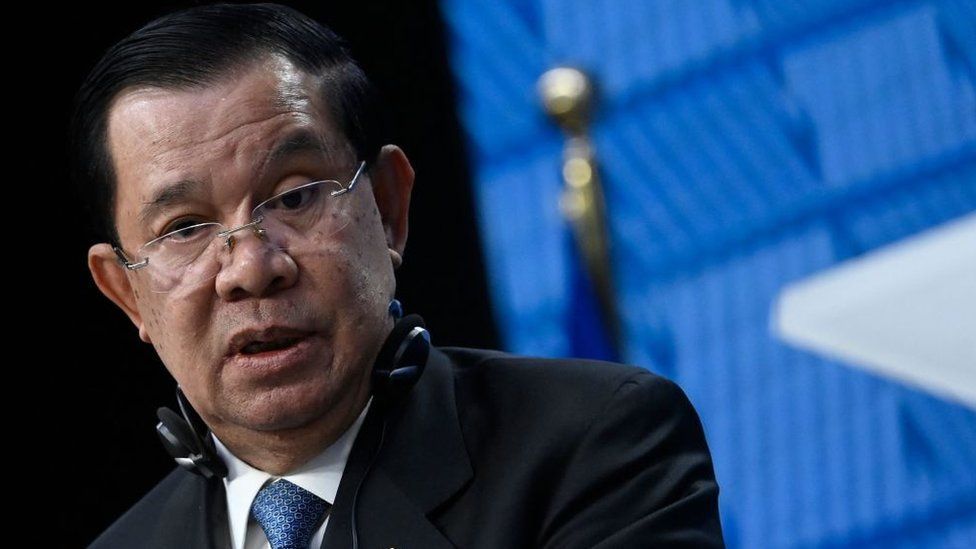 Getty Images
Getty ImagesCambodia’s long-term leader is almost certain to extend his party’s rule at an election on Sunday where there no serious challengers.
Voters turning up to the polls in Phnom Penh told the BBC they expected the Cambodian People’s Party to sweep all 125 seats in parliament again.
Hun Sen, who has been in power for 38 years, faces no real challenge after the only credible opposition party was disqualified in May.
Critics have called the vote a sham.
“It’s a rigged election because there are no real strong opposition parties,” one voter, an aid worker in Phnom Penh, told the BBC earlier this week.
Western nations, including the US, have also expressed concerns about the integrity of the vote.
Opposition lawmakers this year have reported violent attacks, with Human Rights Watch reporting the government stepped up intimidation and arbitrary arrests of political opposition in the run-up to the poll.
In May, the government barred the country’s main opposition party, the Candlelight Party, on a technicality. The National Election Commission said the party was missing paperwork, which it had not needed for the local elections last year.
Candlelight had won 22% of the vote last year – and analysts say Hun Sen saw them as a potential threat to his rule.
Hun Sen has become increasingly authoritarian in his rule, political analysts say.
Earlier this year, leading opposition figure Kem Sokha was sentenced to 27 years prison on alleged treason charges, and key news outlet Voice of Democracy shut down.
It is the second election in a row where Hun Sen has targeted democratic institutions and crippled the opposition before voting day, analysts say.
In 2018, his Cambodian People’s Party won every single seat in the 125-seat National Assembly after the main opposition alliance was dissolved by the politically- controlled courts.
Seventeen other parties are participating in this year’s election, but almost all are too small, new or are aligned with the ruling party to be considered credible challengers.
The vote comes at an uncertain time for Cambodia’s economy – with locals reporting struggles with rising fuel prices, stagnant wages and growing debts.
While Hun Sen is campaigning for re-election, he has flagged that this may be his last term. In 2021, he said would hand over control to his eldest son who currently commands the Royal Cambodian Army.
Han Manet is a first-time candidate for a parliament seat this election and led the final day of party rallies in Phnom Penh on Friday.
However it’s unclear if of when his father will relinquish control.
Hun Sen’s party has won all six of the national elections held every five years since the 1990s, when the UN helped the Southeast Asian nation of 16 million people become a functioning democracy post decades of civil war and the murderous Khmer Rouge regime.
Over four decades, he has consolidated power through control of the military, police and moneyed interests. Observers say he has dispatched opponents through co-opting, jailing or exiling them.
Court orders DNP to move naughty jumbo
PUBLISHED : 23 Jul 2023 at 06:26

The Nakhon Si Thammarat Administrative Court has ordered the Department of National Parks, Wildlife and Plant Conservation (DNP) to capture and relocate a wild elephant named “Phlai Chao Nga” within 15 days.
The elephant left Tai Rom Yen National Park and damaged the crops of locals in Nop Phi Tham district of Nakhon Si Thammarat.
The ruling was read in court on Friday. It ordered the DNP director-general to carry out the operation to relocate the wild elephant to Khlong Saeng Wildlife Sanctuary in Surat Thani within 15 days and report on progress.
Villager Saksit Aoysawat filed a lawsuit after Phlai Chao Nga wandered into his village in tambon Krung Ching while looking for food in January 2022.
The complaint said the DNP had some measures to prevent the elephant from wandering out of the forest, but they did not work.
The DNP previously ordered its officials at the Protected Area Regional Office 5 (Nakhon Si Thammarat) to capture and relocate the elephant to the park but they had yet to do so.
Even though Phlai Chao Nga has not hurt anyone, the elephant has caused widespread damage to farmland and may pose a danger to locals in the future, villagers say.
About 25 witnesses whose farmlands were damaged by the elephant were called in to testify as well as representatives of the park.
The court then handed its verdict to the DNP to catch the elephant within 15 days, starting from Saturday.
The court ordered the DNP to relocate the elephant to Khlong Saeng Wildlife Sanctuary in Surat Thani instead of Khlong Nga Wildlife Sanctuary in Tai Rom Yen National Park as many villagers said the Khlong Nga Wildlife Sanctuary is too close to their village.
The Surat Thani sanctuary is seen as a better choice because the Elephant Conservation and Management Committee, set up by cabinet last year, designated it as one for troublesome wild elephants.

